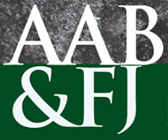Abstract
The world financial markets have reacted in a highly consistent pattern to the incident of 9/11 in the United States, suicide blasts at night clubs at Bali in 2002, the Madrid and London train bombings in 2004-2005 and a series of continuous blasts and suicide attacks in Pakistan. In this study, we examined the effect of terrorist attack news on returns and volatility for the Karachi Stock Exchange. We employ the EGARCH model proposed by Engle and Ng (1993) as it allows good and bad news to have a different impact on volatility. Our results ndicate that terrorist attack news has negative impact on the returns of all the sector indices. However, news of these events increased the volatility of KSE100 index and financial sector index. Further it is concluded that the results of oil and gas, and industry are not statistically significant in response to terrorist attack news, indicating that such type of news does not affect the volatility of these two sectors. Moreover, volatility asymmetry is negative in all of the sectors including KSE100 confirming leverage effect.
Keywords: Terrorism, EGARCH, asymmetry, stock returns, Karachi Stock Exchange
How to Cite:
Tahir Suleman, M., (2012) “Stock Market Reaction to Terrorist Attacks: Empirical Evidence from a Front Line State”, Australasian Accounting, Business and Finance Journal 6(1), 97-110.
Downloads:
Download PDF
46 Views
5677 Downloads

